How To Increase Platelet Count Naturally
By Dr. Vishesh Bharucha +2 more

Get,

to manage your symptom
Get your,


4 Cr+ families
benefitted

OTP sent to 9988776655



You’ve successfully subscribed to receive
doctor-approved tips on
Whatsapp

Get ready to feel your best.

Hi There,
Download the PharmEasy App now!!


Register to Avail the Offer
Send OTPBy continuing, you agree with our Privacy Policy and Terms and Conditions

Hi There,
Sign up on PharmEasy now!!
Trusted by 4 crore+ families

OTP sent to 9988776655



You have unlocked 25% off on medicines




Code: NU25

Comments


Leave your comment here
By Dr. Vishesh Bharucha +2 more
Table of Contents
Human blood consists of different types of cells, each serving a distinct purpose. These cells include red blood cells, white blood cells, and platelets. Platelets are cells that are responsible for helping the blood clot when we cut ourselves or have any bleeding from any other form of injury.
For platelets to function properly, it is important for us to be physically healthy. However, in certain conditions, the platelet count can reduce dramatically which can affect overall health. If the platelet counts are low, it can result in not just minor bleeding from tiny cuts and bruises, but in more severe cases, it can result in internal bleeding, such as in the gut or around the brain.

Therefore, it is essential to know how to improve platelet count, whether through medication or through natural methods. In this article, we will take a brief look at how platelet counts can be increased in the blood through natural methods in various clinical conditions.
In simple terms, platelets are blood-clotting cells. When there is any damage to the lining of blood vessels, platelets stick together in an attempt to plug the damage. Normally, we have around 1.5 lac to 4 lac platelets per microliter of blood. Any number lesser than 1.5 lac is called thrombocytopenia, while a number greater than 4 lac is called thrombocytosis2.
The shape of platelets is quite amazing. When platelets are inactive, they are shaped in the form of small plates. However, when they are activated by signals released from damaged blood vessels, they change their shape so that they become sticky and can plug any bleeding that occurs in the body.
Interestingly, one of the causes of heart attacks is excessive activation of these platelets. When there is damage to the blood vessels within the heart, the platelets clump together and form a mass of platelets and other material called a thrombus. This thrombus completely blocks the blood vessel and can lead to a heart attack. Treatment that is given for such individuals are medications (such as antiplatelet drugs) that reduce the activation of platelets and prevent them from forming these clumps1.
However, there are times when the platelet counts can reduce significantly (thrombocytopenia) and can lead to complications such as bleeding from the stomach, bowel, and even the brain. Low platelet count can occur from viral fevers, dengue fever, certain bone marrow conditions such as leukaemia or lymphoma, certain medications (such as chemotherapy drugs), or even excessive alcohol consumption. Therefore, it is sometimes beneficial to consider natural ways to increase platelets with the guidance from a healthcare provider.
Here are the measurements for different levels of platelets in the blood. Platelets are measured by checking how many platelets are in 1 microlitre of blood2.
Exhaustion and fatigue can be an indication of a drop in platelet count. Viral Infections result in a decrease of blood platelets and since Covid is also a severe type of viral infection, the drop in platelet count can be an early symptom of Covid-19. Several studies10 revealed that individuals with a severe case of Covid-19 had a much lower average platelet count than individuals with a milder infection.
Platelets have been found to play a defensive role against inflammatory and infectious responses from the virus. They combine thrombotic and immunity functions, helping to prevent microbial infections. Blood platelets interact directly with the viruses via receptors and engulf the aggregating pathogens and microbes. They also help in the formation of leukocyte aggregate and help provide endothelial protection. However, in severe viral infections, platelet antibody formation can occur, leading to platelet clearance.
It is advised to not ignore symptoms of fatigue, exhaustion, and breathlessness, as many cases of Covid-19 cases worsen due to the delay in recognising these signs. Severe covid infection can result in a significant drop of platelets, making the disease life-threatening. Early detection and diagnosis can save lives4.
Increasing platelet count through diet and exercise alone can be challenging. In some cases, conditions like dengue fever and viral infections may require platelet transfusions, administered intravenously, to restore normal platelet levels4.
That being said, if you are looking for ways to increase platelet counts naturally, then the list of foods below can be helpful to some extent.
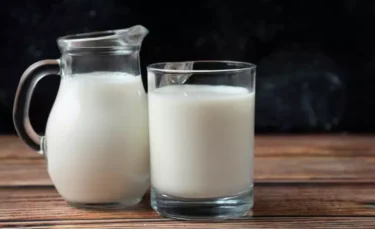
We all know that milk is a rich source of calcium and protein and is important in maintaining the strength of bones and muscles in our body. Milk also contains vitamin K, which is an essential vitamin in the blood clotting mechanism in our body. Furthermore, it is believed that regular consumption of milk may help in improving total blood platelet counts but ensure to consult with a doctor to see if this is right for you5.
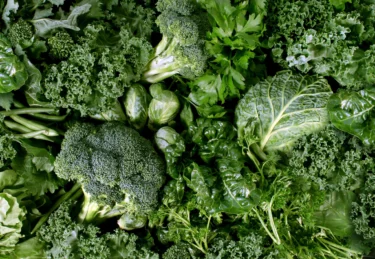
Green leafy vegetables are an excellent source of vitamin K, which as mentioned earlier, is essential in the blood-clotting pathway. Additionally, these vegetables can help increase platelet counts to some extent. Along with parsley, basil, spinach and celery, other vegetables such as asparagus, cabbage and watercress can be beneficial in increasing platelet count5.
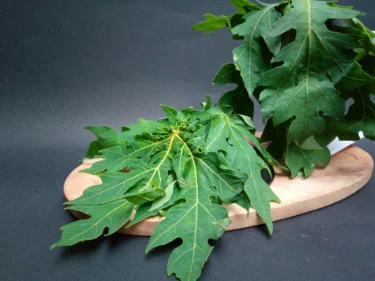
One of the most well-known remedies for low platelet counts is papaya leaf extract. If you’re wondering how to increase platelet count during dengue fever, consuming a glass or two of papaya leaf extract regularly may help support platelet production. While the exact mechanism isn’t fully understood, clinical trials have shown significant benefit of papaya leaf extract in increasing platelet counts in viral fever.
However, the juice of papaya leaf can be rather bitter and some people experience nausea and possibly even vomiting. In such a situation, oral medication in the form of capsules is now available in India, providing the same beneficial extract needed to boost platelet counts without the bitterness6.
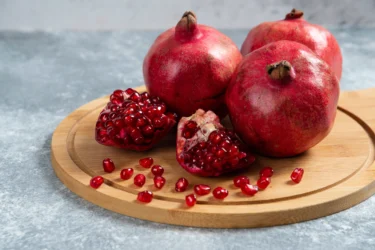
Pomegranate seeds are rich in iron and can help improve blood counts. Pomegranate is now commonly recommended as a fruit to be consumed regularly for increasing platelet counts. If you’re wondering how to increase platelet count during malaria, try having a bowl of pomegranate a couple of times a day for the boost you need. Additionally, pomegranates are packed with antioxidants and vitamin C, which can help boost immunity and effectively fight infections5.

Pumpkin is another food that has amazing properties of increasing platelet count. This is because it contains vitamin A, which can have some benefit in increasing the number of platelets produced by the bone marrow3.
Other vitamins A rich foods include carrots, sweet potato and kale. If you are looking to increase platelet count during pregnancy, you should talk to your doctor before increasing your intake of these foods7.
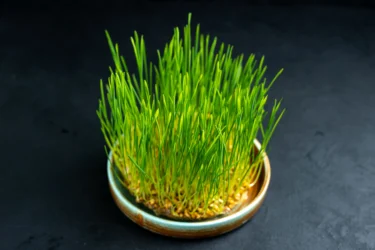
Wheatgrass is highly beneficial for boosting platelet count and offers additional advantages, such as increasing the overall number of red and white blood cells in the body. Freshly made wheatgrass juice can be particularly helpful for those looking to raise their platelet count during chemotherapy.
A low platelet count can be concerning. If you’re wondering how to increase platelet count naturally, incorporating these foods into your diet occasionally may be helpful. However, if the low platelet count is due to an underlying medical condition, it’s important to consult a hematologist (blood specialist) for testing to determine the cause8.
Low platelet counts can cause severe bleeding and potentially fatal complications. If you have a low platelet count on routine blood reports or experience abnormal bruising, red spots, or bleeding, seeking medical attention from a haematologist is necessary. Relying solely on home remedies is not recommended.
Dr. Arpit Verma, MBBS, MD (Pharmacology)
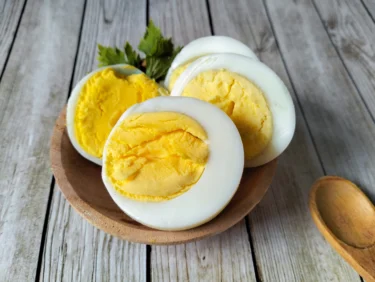
Vitamin B12 is essential for maintaining healthy blood cells, and a deficiency in this vitamin can result in a low platelet count. Good sources of vitamin B12 include animal proteins such as eggs, liver, and seafood3,9.
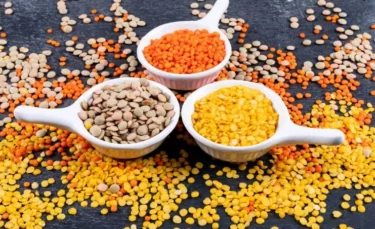
Iron is a vital nutrient that helps in the production of red blood cells. A deficiency in iron can lead to low platelet count and low haemoglobin levels, resulting in a condition known as anaemia. Foods rich in iron includes leafy vegetables like spinach, lentils, pumpkin seeds, raw bananas and guava9.
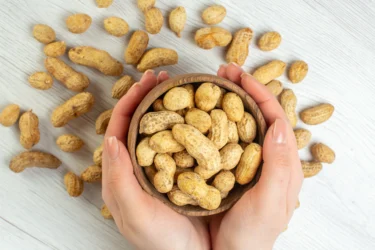
Folates are a type of Vitamin B. Also referred to as folic acid, this nutrient is beneficial for many cells in the body, but the effect of folic acid on platelet function is inconclusive9. Rich sources of folates include peanuts, oranges, kidney beans, lentils, etc.

Studies9 indicate that vitamin C may help increase the level of platelets in the body.
Vitamin C is essential to improve and maintain the immunity of the body. It helps you absorb iron efficiently and may also increase your platelet count. Great sources of Vitamin C include lemons, lime, oranges, and pineapples.
Also Read: Everything To Know About the Influenza Vaccine & Its Importance
Maintaining a healthy platelet count is important for proper blood clotting and overall well-being. While medical intervention may be necessary in severe cases, natural remedies and nutrient-rich foods like papaya leaf extract, pomegranate, leafy greens, and wheatgrass can offer supportive benefits. Incorporating these into your diet, alongside essential vitamins like B12, C, iron, and folate, may help gently improve platelet levels over time. However, a sudden drop in platelets should never be ignored as timely consultation with a doctor is essential to rule out underlying conditions and avoid serious complications.
Also Read: Food for Dengue – What To Eat And What To Avoid!
Certain foods and beverages can contribute to a decrease in platelet count. It’s important to avoid quinine, which is found in tonic water, as well as alcohol and cranberry juice. Always follow your doctor’s recommendations for the best dietary choices to support your health.
If your platelet count does not increase on its own, it’s important to consult your doctor, who will determine the most appropriate treatment for you. This may include a platelet transfusion or prescribed medications.
An untreated low platelet count can be very serious because it can lead to internal bleeding of the intestines or the brain, and sometimes even cause death. To avoid any risks, you must consult the doctor immediately if your platelet count is lower than normal.
Symptoms may include excessive bruising, prolonged bleeding from cuts, petechiae (tiny red dots on the skin), fatigue, and in severe cases, internal bleeding. Low platelet count may sometimes show no symptoms and is diagnosed through routine blood tests.
Low platelet count is usually diagnosed through a complete blood count (CBC) test, which analyses the number of platelets in the blood. Further testing, such as bone marrow biopsy or specific blood tests, might be necessary to find the underlying cause.
Disclaimer: The information provided here is for educational/awareness purposes only and is not intended to be a substitute for medical treatment by a healthcare professional and should not be relied upon to diagnose or treat any medical condition. The reader should consult a registered medical practitioner to determine the appropriateness of the information and before consuming any medication. PharmEasy does not provide any guarantee or warranty (express or implied) regarding the accuracy, adequacy, completeness, legality, reliability or usefulness of the information; and disclaims any liability arising thereof.
Comments

Leave your comment...

View all comments(1)
You may also like
Very informative and helpful